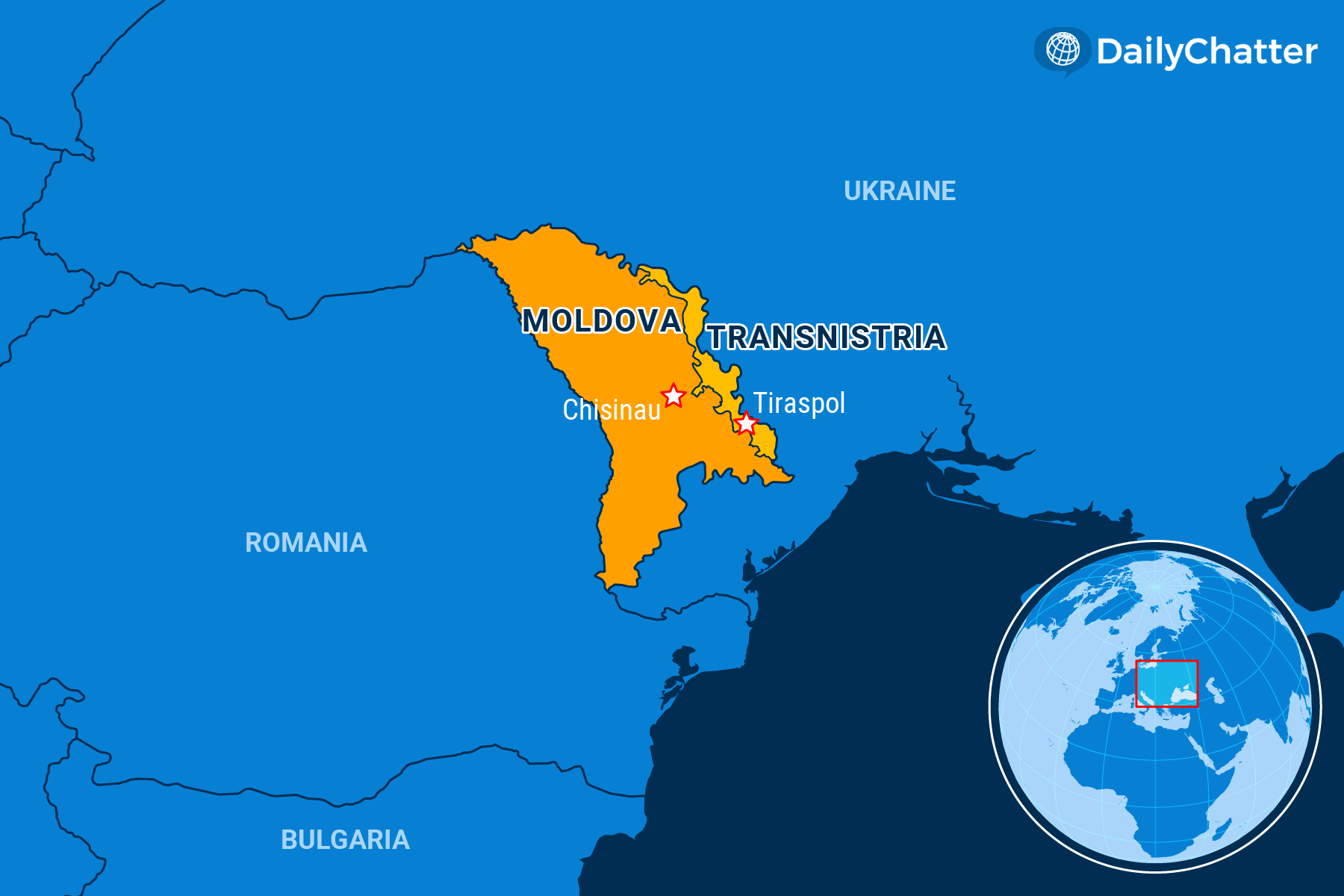
The World Today for May 16, 2024
NEED TO KNOW
Fronts and Faults
MOLDOVA

A few months ago, photos surfaced of Belarussian President Alexander Lukashenko standing next to a map depicting battles that had occurred in Ukraine, battles that had yet to occur in Ukraine and, curiously, another former Soviet republic: Moldova.
Specifically, reported the Hill, the plans showed Russian troops using Belarussian territory to invade the breakaway eastern Moldovan region of Transnistria, a thin strip of land along Moldova’s western border with Ukraine where local Russian-speaking secessionist leaders receive Moscow’s support. Russia has used Belarus to stage attacks on Ukraine in the past. Belarus has reportedly considered sending troops to join Russia on the front line to fight Ukrainian forces.
Moldova and Transnistria are important because they represent another political and ideological fault line between the West and Russia that has the potential to become a military front line as well.
Moldova was already reeling from Russia’s invasion of Ukraine soon after it began in late February 2022, according to World Politics Review, citing United Nations sources. In one week in March 2022, a million Ukrainians fled over their southern border to Moldova, whose population is only 2.6 million. Its tiny size is one reason why experts still discuss the slight possibility of the larger, Romanian-speaking section of Moldova, which excludes Transnistria, uniting with Romania, a member of the European Union.
More realistic, but also problematic, would be Moldova itself joining the EU. In October, the country will vote in a referendum to amend the constitution along with presidential elections to express the people’s wish to become part of the bloc, explained Chatham House. Both Moldova and another former Soviet republic, Georgia, are now slated to open formal accession talks with the EU in June, reported Radio Free Europe.
The problem is that this tilt to the West runs counter to Russian President Vladimir Putin’s ambitions to restore Russian hegemony over the former Soviet Union and Eastern Europe. Moldovan leaders have also welcomed cooperation with NATO, likely further peeving Kremlin insiders, added Asia Times.
Russian officials have warned Moldovan leaders in the capital of Chișinău that they would invite a Russian military response if anyone attempted to exert control over Transnistria by force, Balkan Insight reported. Russia has alleged that 220,000 Russian citizens live in Moldova. “We are concerned about their fate and will not allow them to become victims of another Western adventure,” said Russian Foreign Minister Sergey Lavrov.
To such end, they opened polls in Transnistria for the Russian presidential election in March, to fierce criticism from the Moldovan government. Putin said he would support Moldova’s autonomous region of Gagauzia after meeting the territory’s pro-Moscow leader in March, Politico noted.
Such threats and other meddling have allowed Russia to stymie Moldovan and European attempts to appease the Transnistrians and other Russian speakers in the country, noted University of Birmingham professor of international security Stefan Wolff in the Conversation. Russia’s disinformation campaign before the October vote, for instance, has been intense, wrote Politico.
At the same time, protests have broken out in Moldova over the past 18 months – most recently in February, led by the pro-Russia Revival Party, demanding the pro-Western government resign, the Associated Press reported. Most of the protests have been led by the Moscow-friendly Shor Party, which was declared unconstitutional last June by the Constitutional Court for trying to destabilize the country.
Meanwhile, pro-Western counter-demonstrators have been coming out in force, too. About 60 percent of the population supports closer ties with the EU, a poll in December showed.
Still, as Moldova fights Russian influence, and the EU’s chief has made clear that she wants to support Moldova’s bid, it’s still got much work to do at home to be able to join the bloc. Writing in Euractiv, former Moldovan minister of Justice and a former judge on the European Court of Human Rights, Stanislav Pavlovschi, said Moldova is at a crossroads, and possibly on the cusp of a new era if it can address its internal challenges such as corruption, democratic backsliding and judicial reform.
“As advocates of Moldova’s path to European Union membership, we must acknowledge the daunting task that lies ahead,” he wrote. “Moldova must navigate a delicate balance between external pressures and internal imperatives … While the road ahead may be arduous, it is not insurmountable.”
To read the full edition and support independent journalism, join our community of informed readers and subscribe today!
Not already a subscriber?
If you would like to receive DailyChatter directly to your inbox each morning, subscribe below with a free two-week trial.
Support journalism that’s independent, non-partisan, and fair.
If you are a student or faculty with a valid school email, you can sign up for a FREE student subscription or faculty subscription.
Questions? Write to us at [email protected].
